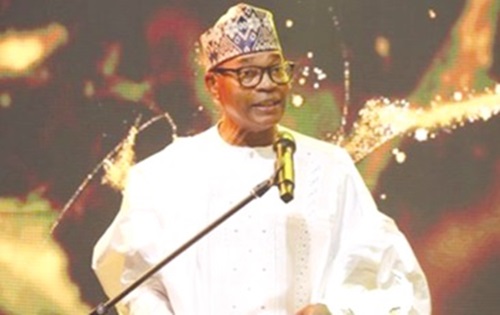The UPSA Annual Leadership Lecture is a flagship programme promoting thought leadership, critical dialogue and the engagement of key stakeholders on development issues.
It aligns with UPSA’s mission to expand its influence in scholarship, research and professionalism, while reinforcing its commitment to community service and national development.
Held annually, the lecture invites distinguished individuals with deep insights into leadership—especially in the context of emerging economies and complex global challenges—to share their perspectives.
Inaugurated in 2017, the maiden UPSA Annual Leadership Lecture was delivered by Dr Mohammed Ibn Chambas, then United Nations Special Representative for West Africa and the Sahel.
His address, titled: “Equipping the Youth to Renegotiate Africa’s Position in the Era of Africa Rising,” was a clarion call for youth empowerment and strategic policy reforms in Ghana and across Africa.
Dr Chambas traced the continent’s political and social evolution, spotlighting the critical role students and young activists have historically played—from anti-colonial struggles to the fight for civil rights.
He urged universities to continue functioning as “intellectual marketplaces,” nurturing democratic participation and national renewal.
For Africa to thrive, its youth must be equipped and inspired to lead.
Africa rising
The lecture also interrogated the popular “Africa Rising” narrative, which gained momentum in the early 2010s due to impressive GDP growth, a burgeoning youth population, and improved governance.
Drawing on McKinsey Global Institute data, Dr Chambas noted that between 2010 and 2015, Africa recorded an average real GDP growth rate of 4.4 per cent, with productivity rising by 1.7 per cent annually.
However, he warned that this growth was largely driven by commodity exports, making economies susceptible to global shocks.
To ensure long-term prosperity, he argued that Africa’s growth must be underpinned by structural transformation, economic diversification, and inclusive development.
Using the 2016 recessions in Nigeria and South Africa as case studies, he stressed that meaningful progress must move beyond short-term economic gains and focus on building resilient systems capable of withstanding external disruptions.
Dr Chambas made a compelling case for aligning education with the continent’s development needs.
He pointed out that although enrolment figures had improved, only a small fraction of African youth accessed tertiary education—and fewer still graduated with industry-relevant skills.
He called for a renewed focus on technical, vocational, and digital training, with strong collaboration between academia and industry to bridge the skills gap and boost employability.
Turning to broader challenges, the lecture underscored the urgency of confronting the interconnected threats of climate change, conflict and demographic pressure.
From the shrinking Lake Chad to intensifying farmer-herder clashes, Dr Chambas cited these as symptoms of weak governance and environmental mismanagement.
With Africa’s population projected to triple by 2100, he advocated for integrated development strategies that promote urban resilience, environmental sustainability, and peace-building.
Leadership, governance
At the core of Africa’s challenges, he asserted, is the issue of leadership. Dr Chambas identified five pillars essential for sustainable development: macroeconomic reform, transparent governance, institutional accountability, civic engagement and regional integration. He urged ECOWAS and the African Union to strengthen policy harmonisation, expand trade partnerships and foster a shared continental vision for progress.
One of the most poignant moments of the lecture came when Dr Chambas appealed to the civic conscience of African youth.
While demanding rights and representation is important, he emphasised the equal importance of embracing responsibilities—through national service, volunteerism and a deep belief in the potential of one’s country.
True patriotism, he maintained, is key to nation-building.
Dr Chambas’s lecture did more than inaugurate a new academic tradition; it sparked far-reaching conversations about youth leadership, education reform, and Africa’s global positioning.
Its themes continue to echo across policy roundtables, university halls, and civic platforms—affirming the belief that Africa’s rise must be powered by a prepared, patriotic, and innovative youth.
As UPSA prepares to host Jacob Zuma, former President of South Africa, for the 2025 edition of the Annual Leadership Lecture on Tuesday, August 19, 2025, the university once again positions itself at the intersection of scholarship and global relevance.
This year’s lecture, titled “The Geopolitics and Geo-economics of De-dollarisation: BRICS+ Currency Strategy, Lessons for Africa’s Common Currency and Beyond,” promises to ignite critical conversations about economic sovereignty, monetary integration, and Africa’s role in an evolving global order.
This article is the first in a seven-part feature series leading up to the 2025 UPSA Annual Leadership Lecture.

